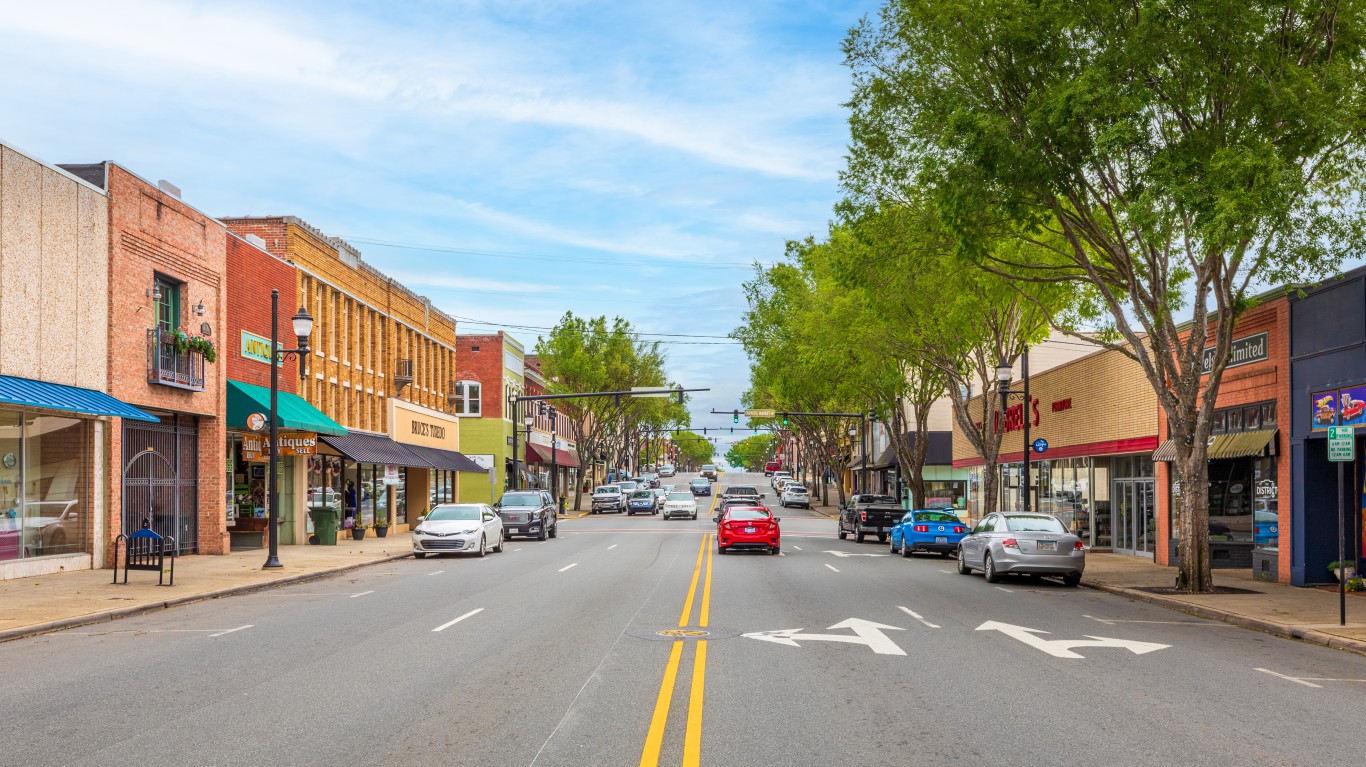North Carolina
One of the original 13 colonies, North Carolina became the 12th U.S. state on November 21, 1789. With a current population of 10.5 million, North Carolina is the ninth-most populous state in the country. The state ranks in the lowest third of the best states to live in based on key measures like unemployment, poverty and average life expectancy at birth.
The state’s population has grown faster than that of most states in recent years. Over the 10-year period to 2019, North Carolina’s population grew by 10.7%, well above the comparable national population growth rate of 6.6%.
North Carolina’s unemployment rate in 2018 was 3.9%, in line with the national rate of 3.9%. Still, despite the relatively strong job market, North Carolina’s poverty rate of 14.0% is considerably higher than the national average of 13.1%.
Crime in North Carolina
North Carolina’s violent crime rate of 377.6 incidents for every 100,000 residents is just below the national average of 380.6 per 100,000. In 2018, there were 628 murders in the state, among the most of any state.
The state’s incarceration rate is 439 adults per 100,000 residents 18 or older, lower than the comparable rate in most other states. There were 39,210 violent crimes committed in the state in 2018, and North Carolina was one of a minority of states to post a year-over-year increase in violent crime.
The North Carolina Economy
With a 2018 gross domestic product (GDP) of $565.8 billion, North Carolina’s economy is among the largest of the 50 states. Its largest industry is banking and credit services, which employs 89,604 people statewide and generates about 4.5% of the state’s total GDP. Between 2013 and 2018, the total economic output of the state’s top industry fell by 19.6%. Still, overall economic growth in North Carolina totaled 2.9% in 2018, in line with the national average economic growth of 2.9%.
North Carolina’s underemployment rate (which accounts for unemployment and people who have taken part-time work out of necessity) is 7.9%, ranking the state in the middle third among the most difficult states in which to find full-time work.
Employment opportunities tend to go up with educational attainment. In North Carolina, less than a third (31.9%) of adults over the age of 25 have a bachelor’s degree, below the national average of 32.6%. And 87.8% of the adults in the state have at least a high-school diploma, below the national rate of 88.3%.
North Carolina’s median household income of $53,855 is considerably lower than the national median of $63,179.
Thank you for reading! Have some feedback for us?
Contact the 24/7 Wall St. editorial team.






